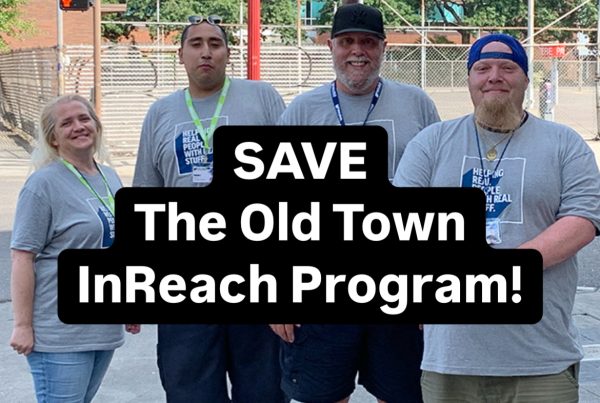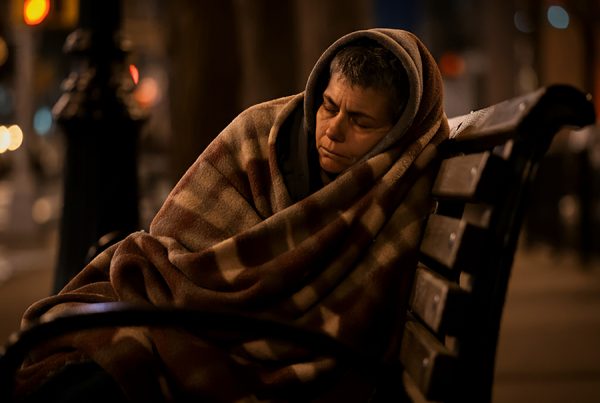Why Medicaid Work Requirements Are Not Possible for Someone Participating in a Recovery or Transitional Housing Program
Congress is considering legislation that would impose stricter work requirements on “able-bodied” adults to qualify for Medicaid under the One Big, Beautiful Bill. While the goal is to reduce costs by encouraging employment, the policy overlooks the crucial reality that for people in addiction recovery or transitional housing programs, work is not an option.
According to the Kaiser Family Foundation (KFF), continuous Medicaid coverage supports ongoing treatment for mental health and substance use disorders, and disruptions may negatively affect individuals’ mental and physical health. KFF.org is tracking Medicaid changes by state and is a valuable resource for staying up-to-date on requirements.
At Blanchet House, up to 45 men live in our transitional housing program at any given time. Many arrive after years of untreated mental illness, chronic health conditions, and substance use. The program is designed to put their attention on healing for long-term success. Residents are required to volunteer in the kitchen, meet with support staff, attend recovery meetings, and medical appointments. They cannot hold outside jobs, because meaningful recovery takes a full-time commitment.
Medicaid Makes Recovery Possible
Nearly every participant at Blanchet House is insured through Oregon’s Medicaid program, the Oregon Health Plan (OHP). Without it, they would lose access to the very services that make recovery possible, such as therapy, medications, primary care, dental care, and mental health support.
Think of the common conditions that residents face and must be addressed to be successful are depression, bipolar disorder, PTSD, diabetes, tooth decay, and liver damage. The list goes on. These aren’t quick-fix issues that an ER visit can solve. They require consistent, long-term care, and that care only happens with coverage.
“If Medicaid is taken away, the only option will be sitting for hours in the ER,” says Shelly Bancroft, Residential Program Manager at Blanchet House. “And what about prescriptions?”
Medicaid Work Requirements Ignore Real Barriers
People in recovery don’t just need time to heal physically and mentally, but they also need time to overcome deeply entrenched barriers to employment, such as:
- A criminal record that would disqualify them from employment,
- Housing insecurity due to credit score, criminal record, or poverty, which makes it impossible to hold a consistent schedule
- Untreated trauma or illness that prevent long-term work success.
An analysis published by Health Affairs Forefront estimates that 4.56 million people with substance use disorders (SUDs) would be at high risk of losing coverage under the new proposed work requirements. And even proposed exemptions for those in treatment programs don’t go far enough, because they don’t account for the red tape that discourages enrollment or the lack of providers who accept Medicaid.
Recovery is Work.
At a time when we’re trying to combat the opioid crisis, reduce ER overuse, and move people out of homelessness, Medicaid work requirements will move us backward. Medicaid work requirements create more paperwork, more confusion, and more reasons for people to fall through the cracks.
Residents at Blanchet House are already working, just not in a way that the proposed legislation values. The work of rebuilding your life can’t be measured in pay stubs, but in passing drug tests, attending doctors’ appointments and meetings, providing peer support, and making plans for a stable future. A future that will allow you to leave Medicaid if you’re able.
Stripping Medicaid coverage from people in recovery or making it more difficult to access is cruel and counterproductive. If we want people to thrive, we must give them the time and tools to recover. Medicaid isn’t a handout; it’s a lifeline. And for those in recovery, it’s the only way forward.


















